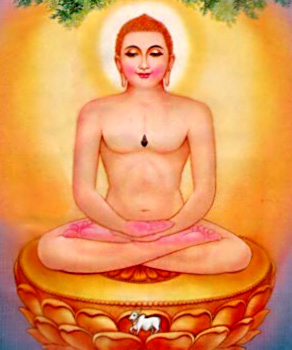 Anekanta vada is one of the most fundamental doctrines of Jainism. Its origins can be traced back to the teachings of Lord Mahavira one of the Jain Tirthankaras. Anekanta vada encourages its followers to consider the views of their opposing parties. This principle of Anekanta vada also influenced Mahatma Gandhi to adopt principles of religious tolerance, ahimsa and Satyagraha. Anekanta vada is one of the three Jain doctrines of relativity which is used for logic and reasoning. This principle is about finding the hidden elements of shared truth between competing ideas.
Anekanta vada is one of the most fundamental doctrines of Jainism. Its origins can be traced back to the teachings of Lord Mahavira one of the Jain Tirthankaras. Anekanta vada encourages its followers to consider the views of their opposing parties. This principle of Anekanta vada also influenced Mahatma Gandhi to adopt principles of religious tolerance, ahimsa and Satyagraha. Anekanta vada is one of the three Jain doctrines of relativity which is used for logic and reasoning. This principle is about finding the hidden elements of shared truth between competing ideas.
The doctrine of Anekanta vada states that all entities have substance, quality and mode. Substance serves as bedrock for multiple qualities, each of which is constantly undergoing transformation. Any entity has a permanent nature and qualities that are bound to fluctuate constantly. Anekanta vada is an ultimate spiritual goal. For human beings it is an elusive goal. Anekanta vada allows one to understand and be tolerant of conflicting views, while maintaining the authority of one`s own view-point.
Jains consider Anekanta vada as a positive concept that corresponds to religious pluralism. This goes beyond monism and dualism, thereby resulting in a sophisticated conception of a complex reality. It reflects a positive spirit of reconciliation of contrary views. This principle is the foundation of many Jain philosophical concepts. The concepts of Anekanta vada allow the followers of Jainism to accept the truth in the philosophy of others thereby inculcating tolerance for other points of view. Anekanta vada is non-absolutist and stands against all dogmatisms, including assertion that Jainism is the only correct religious path.
Mahavira used this principle to show the relativity of truth and reality. The importance and antiquity of Anekanta vada are demonstrated by the fact that it formed the subject matter of Astinasti Pravada, the fourth part of the lost Purva that contained teachings of the Tirthankaras prior to Mahavira. Anekanta vada played an important role in the growth and survival of Jainism in ancient India. Anekanta vada was used by Jain monks to obtain royal patronage from the Hindu Kings. In Anekanta vada there is no clash of ideas as it is considered to be a form of intellectual violence that leads logically to physical violence and war.
Anekanta vada did not prevent the Jain thinkers from defending the truth and validity of their own doctrine while simultaneously respecting and understanding the rival doctrines. It is an ahimsa of the mind. Democracy, Modern judicial systems, freedom of speech and secularism all reflect an attitude of Anekanta vada.



















